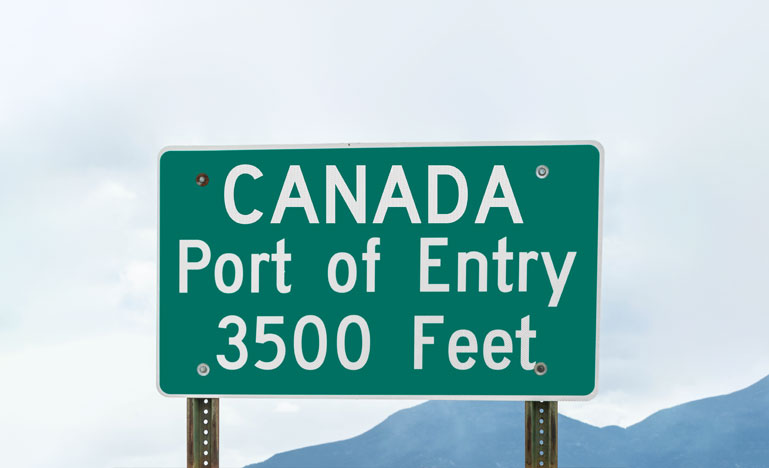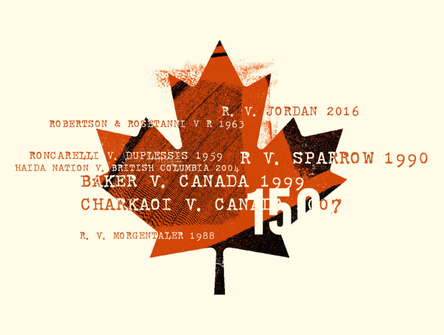The pandemic and the long-term impact on immigration
The challenge of interpreting immigration policy in the time of COVID-19

Immigration policies tend to have long-term economic implications, even in normal times. It is no less true today as lawmakers, the Canada Border Services Agency and immigration lawyers struggle to manage the coronavirus crisis.
How COVID-19 will affect the landscape for lawyers will be the focus of an online panel at the upcoming CBA immigration law online presentation on May 29. One of the first items up for discussion will be how the various federal and provincial orders are being interpreted at the border.
Co-moderator Robin Seligman, founder of Seligman Law in Toronto, says that there will be a focus on port-of-entry issues involving family members, returning Canadian citizens and permanent residents.
"A big issue is how CBSA is interpreting things, and making sure there is proper interpretation of what the government wants in terms of policy, and not letting individual officers decide," says Seligman. "There needs to be way better oversight and proper instructions for CBSA, because they're not taking their instructions from the department of immigration like they normally would be doing."
Co-moderator Jenna Kirk, a lawyer in the business law practice at KPMG Law LLP in Calgary, considers the immigration section to be among the most collegial in the country. The panel will offer lawyers the opportunity to share notes and compare experiences of how rules and orders have been applied across the country.
"What have you seen at the border, what have you seen happening with these applications, what kinds of processing times are you seeing?" asks Kirk by way of example. "We're more of a conversational section."
Seligman says that many issues normally decided by visa officials are now handled by airline staff deciding whether to allow people onto aircraft. As well, there are conflicts in our laws. The definition of "essential service" under the federal Quarantine Act and the various Orders in Council doesn't necessarily align with Ontario legislation, for instance.
"As an example, take an American who works for a financial services company," says Seligman. "In terms of the Quarantine Act, they're not under an essential service like food distribution or healthcare workers, but in Ontario, they're listed as an essential service. I've managed to get a wealth manager in under NAFTA. It's hit-and-miss."
"There needs to be some consistency, and someone needs to sit down and rein in CBSA so that they're administering the proper policy," says Seligman.
Kirk is interested in hearing from lawyers about what is happening at the borders.
"Who is being allowed in, who's being excluded, what kinds of family situations are being affected by this, and what as lawyers can we do about this to ensure that everyone is applying with our constitutional rights and safety," are just some of the issues that need to be top of mind, says Kirk. "And seeing what officers are doing to balance the safety of Canadians with the ability to travel, and how they're making some of those decisions on what is and isn't going to be allowed in to Canada with regards to workers," lists Kirk.
According to Kirk, changes to internal policies and how that affects the processing of work permits should also come up for discussion. For example, there are new provincial requirements in Alberta for agricultural workers. And how will seasonal workers under International Experience Canada be affected?
There are also questions surrounding international students, and the knock-on effects of them not being allowed to attend class in person. Universities rely on the higher fees they charge those students.
Kirk also points to challenging issues around post-graduate work permits.
"What do we do with people who were required to get one full year of school and didn't get it because schools were cancelled?" asks Kirk. "Now they don't qualify for their one-year work permit, which means they can't apply for their permanent resident, which is going to have implications. We're going to see issues with this for certain provincial nominee programs, where you need to have a work history that is uninterrupted – and this is a big interruption."
Panellist Will Tao, a lawyer at Edelmann & Co. Law Offices in Vancouver, worries that international graduates or students have the most trouble advocating for themselves, and are unable to access the benefits on offer because their immigration status plays a role.
"I've heard from a lot of research assistants personally who had jobs and grants during the summer, and who had those unceremoniously cancelled because there are some of the stigmas around who are we helping in times of crisis," says Tao.
Some students rely upon transfers from overseas accounts, says Tao. They may have been cut off, or can no longer get support from their families in the middle of their studies. They are now facing the challenge of extending their permits.
"Many of these issues are going to become more pronounced as we move forward, and these are almost not necessarily travel ban issues," says Tao. "But they are things we will see the consequences of in the months and years to follow."


